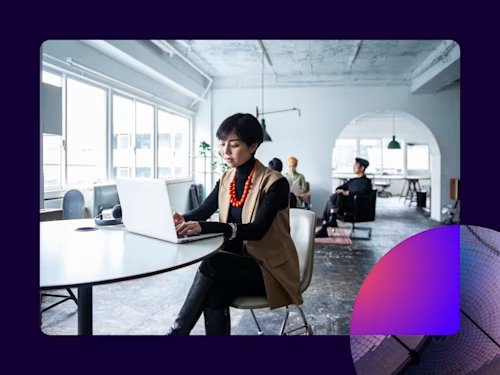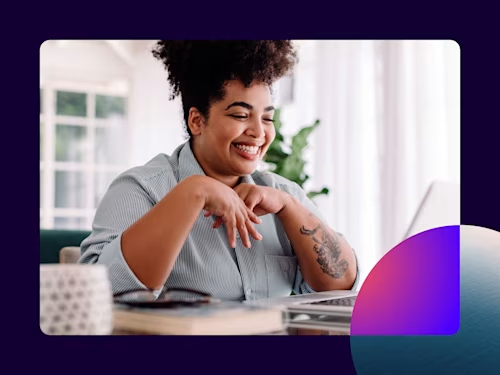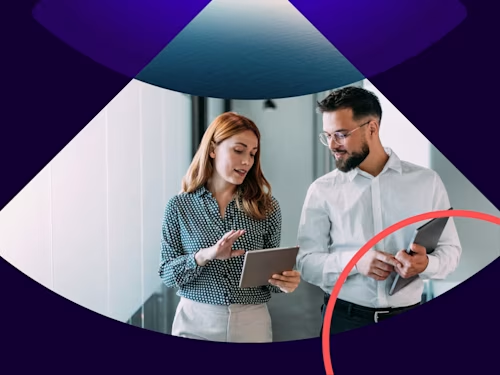
Adopting Sustainable Business Practices - Risk or Opportunity
Highlights from the webinar “Adopting Sustainable Business Practices”. Discover how sustainable business practices can increase trust and transparency.
- What does sustainability mean?
- Businesses are seeking to eliminate and reduce the environmental impact of doing business; how do you see technology playing a part in this?
- When did it hit home that sustainability was a real issue and how you can have an impact on others?
- We’ve talked about the concept of trust - how do you think about trust?
- Do sustainability and technology go hand in hand?
- The role of technology in sustainable innovation
- How smaller businesses can address sustainability
- The importance of transparency
Table of contents
- What does sustainability mean?
- Businesses are seeking to eliminate and reduce the environmental impact of doing business; how do you see technology playing a part in this?
- When did it hit home that sustainability was a real issue and how you can have an impact on others?
- We’ve talked about the concept of trust - how do you think about trust?
- Do sustainability and technology go hand in hand?
- The role of technology in sustainable innovation
- How smaller businesses can address sustainability
- The importance of transparency
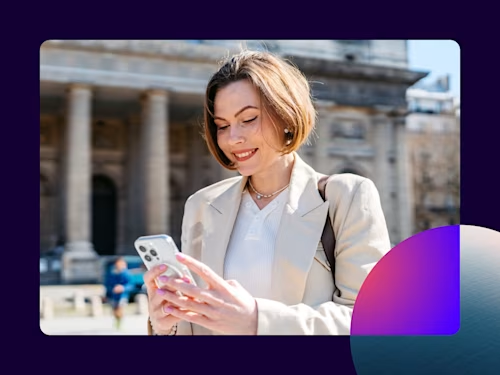
Consumers prefer organisations that prioritise sustainability for a better world. The Edelman Trust Barometer makes it clear that businesses that act sustainability build more trust with customers and employees. So how can you adopt sustainable business practices while driving growth? In this article, we share highlights from the webinar Adopting Sustainable Business Practices: Risk or Opportunity? Emily Heath, the Chief Trust and Security Officer at Docusign, hosted the webinar with a panel of experts to discuss how sustainability helps build trust for organisations.
What does sustainability mean?
Emily Heath was first joined by Ben Fogle, an Environmentalist, Broadcaster, Writer and Adventurer. Ben says, “Sustainability is having an awareness of the impact of every decision we make - whether that be consumerism and the products we buy, whether that’s from a work perspective and the decisions we make in that workplace, whether it’s your travel footprint…”
Hear from Ben on what he does in his own day-to-day life to be more sustainable .
Businesses are seeking to eliminate and reduce the environmental impact of doing business; how do you see technology playing a part in this?
Ben said that he thinks companies are responding to the demand of consumers. Consumers have high expectations and want to understand the impact the organisations they deal with have on the environment.
"Businesses are merely responding to consumers in many ways—consumers have higher expectations from the companies we work with and the products that we buy to understand the impact that the business is having on the environment." - Ben Fogle
He said that a positive aspect of the global pandemic was that it fast-tracked a move towards adopting technology. Although technology has its own environmental footprint, Ben thinks that technology can find a balance between efficiency and maximisation. Ben’s TV shows demonstrate how you can live a contented life by learning to live with less. He says if we limit our waste and optimise returns, that’s where the answers are for organisations, too - it’s a careful balancing act.
"Mindset needs to change from maximisation to optimisation" - Ben Fogle
When did it hit home that sustainability was a real issue and how you can have an impact on others?
Ben says in the animal kingdom, it's survival of the fittest, and it's a battle for survival. There are many selfless people out there, and in the future, Ben thinks we may need to redefine how we look at success. For many people, success is equated with accumulating wealth or getting to the top of your workplace. Ben says he thinks there are alternative versions of success such as health, selflessness, happiness, wellness, and philanthropy that can lead you to be more sustainable.
We’ve talked about the concept of trust - how do you think about trust?
Heather first asked Courtney Holm, the Vice President of Sustainability Solutions at Capgemini, to answer this question. Heather helps shape how Capgemini creates long term sustainable value and digital solutions to help address planetary system and people issues. She’s an expert in facilitating collaboration around complex sustainability issues. Courtney says for her, “Trust is very much about transparency, and that usually has a data aspect to it.”
Next, Heather asked Scot McQueen for his thoughts. Scot is the Senior Technology Officer for the Forest Stewardship Council (FSC). He has 20 years of leadership experience in planning and designing Information Technology Systems and has worked with a wide variety of nature organisations. His current role is to help drive the adoption of technology within the forest certification process. Scott said that trust is a two-way street with businesses needing to connect to customers.
Ben agreed that honesty and transparency form the basis of trust, and if you can be honest and transparent, you can build trust. Trust, he says, is everything.
Do sustainability and technology go hand in hand?
Scott said that the FSC started 28 years ago, and their logo became a symbol of trust. “It demonstrates to customers that people and the environment have been taken care of appropriately. A symbol that everything has been done the right way.” Technology can change that relationship, but the FSC has been using technology to get data in the hands of the consumer to share sustainability information. For example, they share information on the whole supply chain and how a product has been handled all the way through, e.g. where was timber harvested? Traceability and accountability are critical to consumers. Scott says, “Technology can separate us, but it can also connect us and connect vendors and forest owners.”
The role of technology in sustainable innovation
Courtney said that data builds trust through transparency, and data travels through organisations via technology. Technology loves scale, and sustainable innovation needs scale to have an impact. Courtney said that constructs like contracts drive relationships in business, and trust can help to be maintained through documentation. Contracts can be managed efficiently through technology platforms. Technology platforms enable organisations to layer digital solutions on top of one another and allow data to flow through and across business constructs. "In my work with Docusign, we use business applications from the Docusign Agreement Cloud, which help enable trust and transparency. Data helps us to make decisions with an end customer in mind. I see technology, innovation, and sustainability come together from a platform and data perspective."
How smaller businesses can address sustainability
All the panellists agreed that small to medium-sized businesses have the advantage of agility—enabling them to react more quickly. It’s easier for small or medium-sized companies to become early adopters of new technology. Scott says it’s a good idea to become a student of the industry or market you are in and understand that there might be ways of doing things differently. For example, the FSC recently worked with Pirelli to deliver an FSC certified tyre. Rubber is a tree product, and all of the rubber comes from small family farms. Historically there are intermediaries in this process, but the FSC has helped connect small farmers to larger customers. This type of connection can help you with control and visibility. Organisations like the FSC can help you, so it’s important to seek them out.
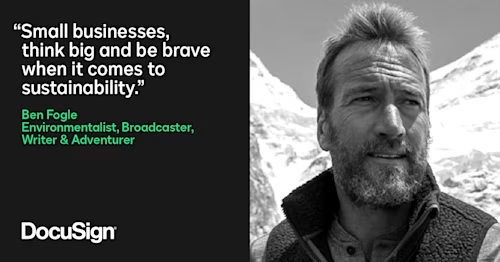
Watch Courtney and Ben speak about how smaller businesses can tackle sustainability.
The importance of transparency
The panel that says transparency and connection with customers are vital - that organisations should embrace this approach to help everyone understand the impact your business has on the environment. They also believe it's important to do and demonstrate what you are doing for employees in the future. Connecting with customers securely will also help us to understand our digital footprint. Just having a product or service to sell won't be enough in the future - people will expect more. The panel say that it's important that businesses lead with an authentic purpose.
Discover more about the Docusign commitment to protect the world's forests and make an environmental impact with Docusign for Forests.

Related posts
Docusign IAM is the agreement platform your business needs

